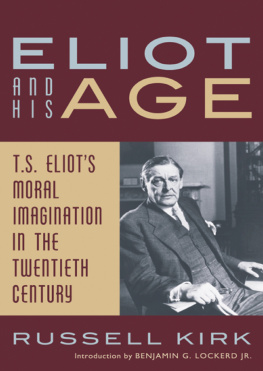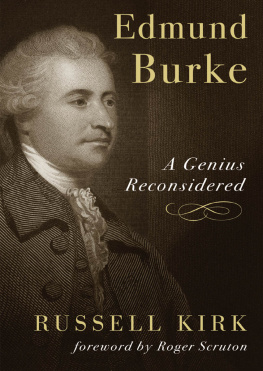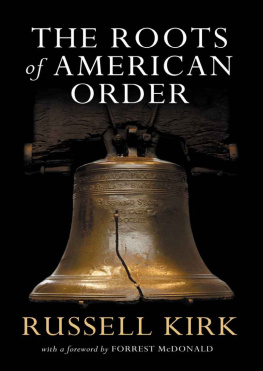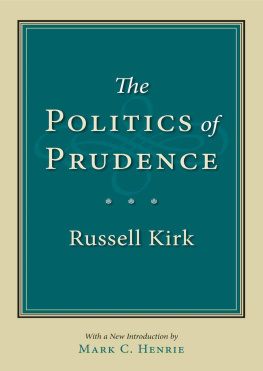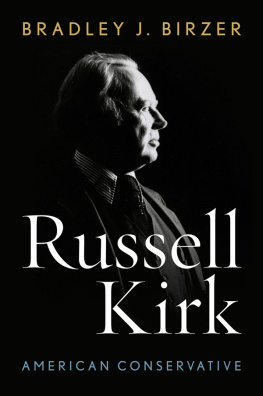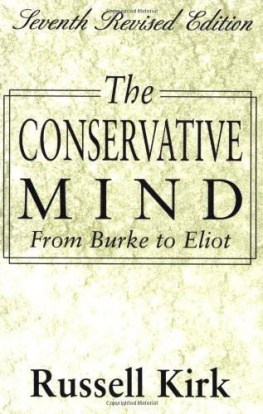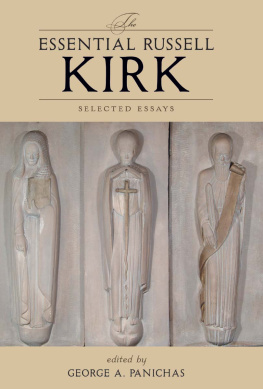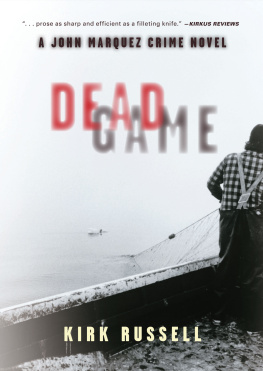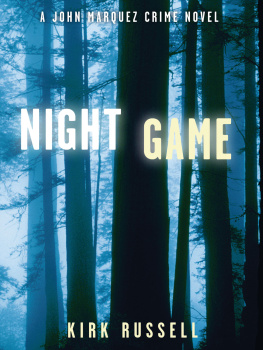Introduction
Wilfred M. McClay
M uch ink has been spilled and countless pixels set aglow in debates over that elusive thing called conservatism. In fact, conservatism has been suffering from a deepening identity crisis for some time now, especially in the United States. The candidacy, election, and presidency of Donald Trump have only accelerated a process that began at least three decades ago with the end of the Reagan administration, and probably much earlier than that. No one seems to be able to say with confidence just what conservatism means today.
The problem may be unavoidable. Because the United States is an unusually fluid society, valuing liberty more than order and esteeming social mobility as one of our principal virtues, it is often unclear what the word conservative means for usnot as clear as it would be if, say, we lived in a relatively static agricultural society governed by stable landed elites with deep roots and well-established customs of social deference. But our society is nothing of the sort. Therefore, those who don the mantle of conservative in America today are an astonishingly diverse lot, ranging from libertarian zealots who embrace the creative destruction of unregulated capitalism and the ceaseless reconstruction of social and cultural institutions to traditionalists who look back longingly to the solidarity, reciprocity, and faithful integration of medieval European society. What common ground could there be between such extremes? No wonder that even sympathetic observers find the spectacle of American conservatism bewildering and turn away from it in confusion and dismay.
When asked to define conservatism, Russell Kirk often resorted to an answer formulated by the Harvard intellectual historian H. Stuart Hughes: conservatism is the negation of ideology. That is in fact a very good answer, or at least the beginning of a very good one. But part of the problem today is that so many conservatives in America are in fact ideologues, whether they know it or not. They are much more interested in conserving and extending the career of certain ideological principles than in conserving and perpetuating the complex web of social arrangements and practices that have proved their worth through the generations. And to make matters worse, the principles being conserved are frequently different for different parties. The force of conservatism, therefore, may be deployed on both sides, pro and con alike, of a great many issues of public policy: American leadership in the world, free trade, drug legalization, gay marriage, property rights, immigration restriction, civil rights, and so on. Who would be surprised to see an article announcing the conservative case for euthanasia or flatly opposing the principle of religious liberty on conservative grounds? If such articles havent been published yet, its only a matter of time.
But there is nothing inevitable about this state of confusion. In fact, there is a strong basis for a balanced and entirely sensible American conservatism, and Russell Kirk lays it out with admirable clarity in the pages of this sturdy book, whose reissue comes at just the right moment, when we need a recovery and revitalization of conservatism, not as something reinvented but as a body of wisdom that has stood the test of time, resisting precipitous and ideologically motivated change, countering the passions of abstract revolutionizing ideology with the concrete virtue of prudence.
The Kirkian way of communicating ideas is quite different from the sloganeering of the present day, but changes in rhetorical fashion have not diminished its appeal. To those who are accustomed to thinking of conservatism as chiefly a matter of policy wonkery presented in crisp quantitative tables and jargon-laden bureaucratic prose, Kirks message, with its historical sweep and poetic splendor, its delight in beauty and fancy, its disdain for academicism in all forms, and its talent for making us feel the vital connection between ourselves and the stories of vanished peoples and things of the past, will come as a great and pleasant surprise.
For Kirk, conservatism is not a set of policy desiderata. It is a disposition of grateful wonder at the miracle of our existence, calling us to acknowledge the sources of our being and to strive to live in respectful and loving harmony with them. It is grounded ultimately in Edmund Burkes sweeping vision of the contract of eternal society, linking the dead, the living, and those yet to be born in a mysterious triple braid of shared joys, obligations, and memories.
One of the many myths about American conservatism is that it is the complacent outlook of the wealthy classes and stands apart from the great American story of individual striving and advancement. But Kirks origins were themselves humble and quintessentially American. He was born in 1918 in Plymouth, Michigan, to a struggling middle-class family living in a prefabricated house that lacked an indoor bathroom. Nor did he have access to the best educational opportunities. Like so many of the most remarkable Americans, such as Abraham Lincoln and Frederick Douglass, Kirk was able to parlay a voracious love of reading into a superior education with a bit of help from solidly traditional public schools that provided him with scope for his literary and debating skills.
It was not until his postwar graduate studies at the University of St. Andrews that Kirk was fully formed as a conservative thinker. It had everything to do with being in Scotland. The atmosphere, lore, landscape, architecture, and people of that country all enchanted him and quickened his literary pulse. He wrote, among other things, three books, seven short stories, and twenty-five scholarly articles during his four years at St. Andrews, establishing a pattern of astonishing productivity that he would continue for another four decades. The most important of his writings during that time was his doctoral dissertation, which was eventually published in 1953 as The Conservative Mind , one of the truly indispensable books in American conservative intellectual history and arguably the most important of all his books.
Of course, 1953 was an annus mirabilis for the American conservative mind. In particular, it was an extraordinarily fertile year for conservative books. In addition to Kirks magnum opus, Robert Nisbets Quest for Community , Leo Strausss Natural Right and History , and Daniel Boorstins The Genius of American Politics were published. And in the years immediately before and after, luminaries such as T. S. Eliot, Ray Bradbury, Christopher Dawson, Eric Voegelin, C. S. Lewis, Whittaker Chambers, William F. Buckley Jr., and Francis Graham Wilson published works of great, and even monumental, importance to conservatives.
But Kirk did something that none of these other authors did. He sought to prove that Anglo-American conservatism was not a recent invention, that it had a usable past, a venerable history of thinkers extending back at least to Edmund Burke, if not a great deal further, and forward to such contemporary figures as George Santayana and Eliot. And as his biographer Brad Birzer has insisted, in [Kirks] definition of the conservative, the poetic, literary, and theological superseded the political. As Kirk explained in 1952 to Henry Regnery, the publisher of The Conservative Mind , it was imperative to recognize the great importance, in literature as in life, of religion, ethics, and beauty. Politics, he snapped, is the diversion of the quarter-educated, and I do try to transcend pure politics in my book.
Not that Kirk ignored politics in his own life; nor would he do so today. But he might well complain, were he with us now, that conservatism has been impoverished in recent years by an overemphasis on ideological forms of politics and the neglect of the realm of the imagination and of the realm of culture more generally, realms in which the conservative sensibility had in the past been powerfully represented. Today we often hear that politics is downstream from culture, an observation that would have seemed obvious to Kirk. It may well be, then, that the transformation of a feckless, life-denying, and inhumane culture into something more consonant with our human endowment is the principal task facing conservatives and conservatism.


